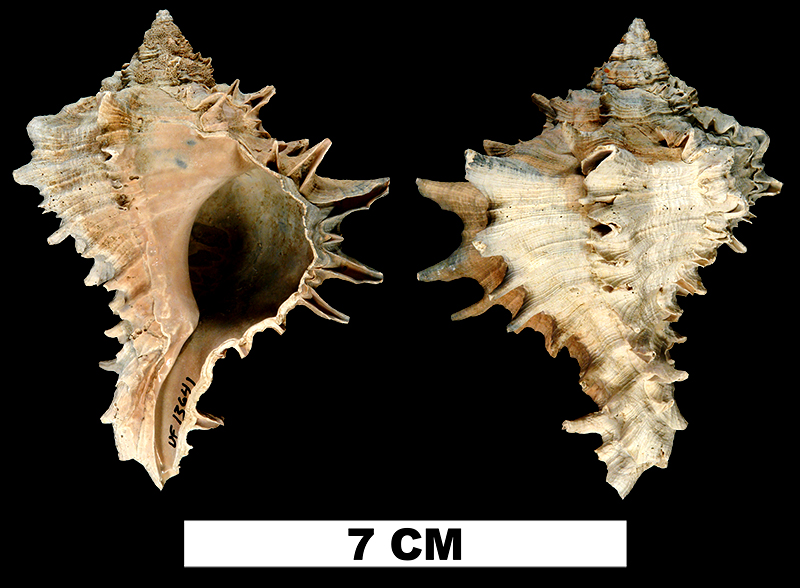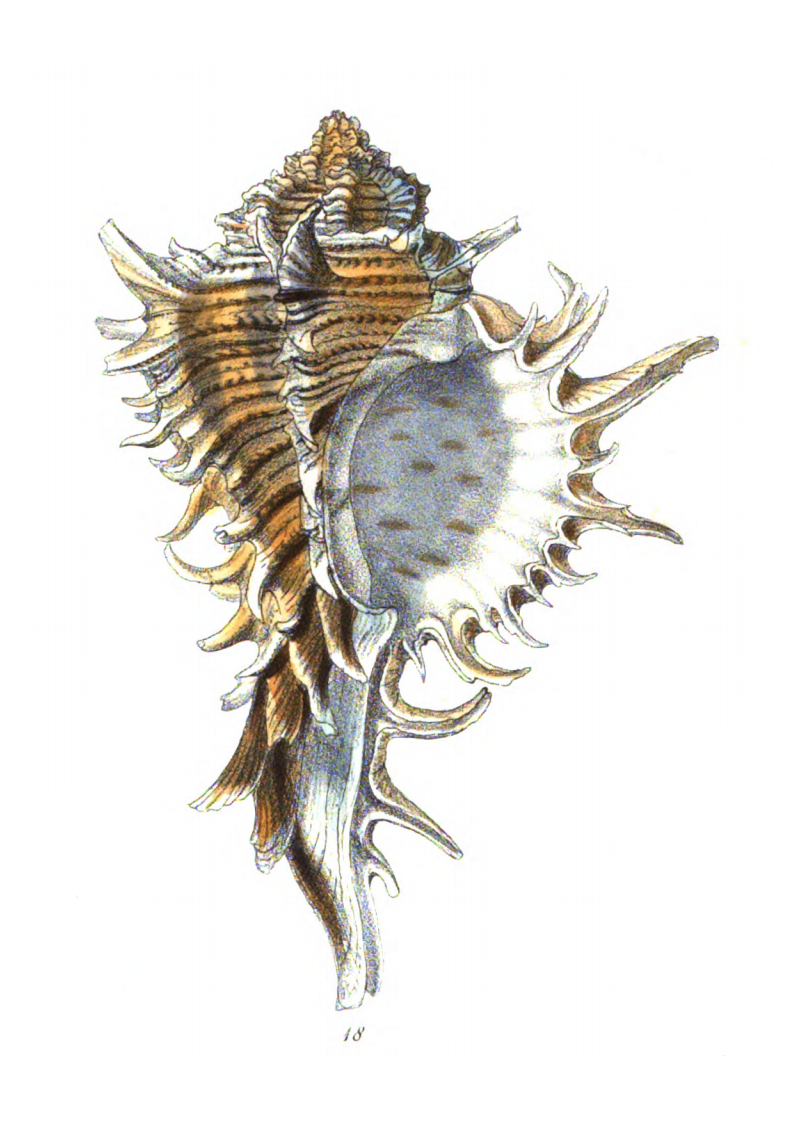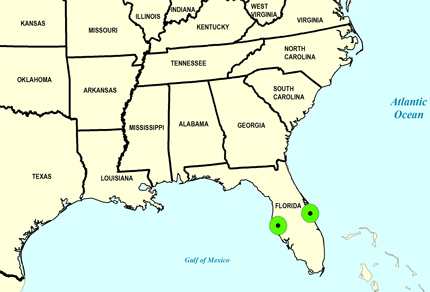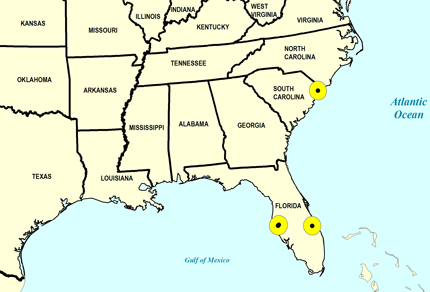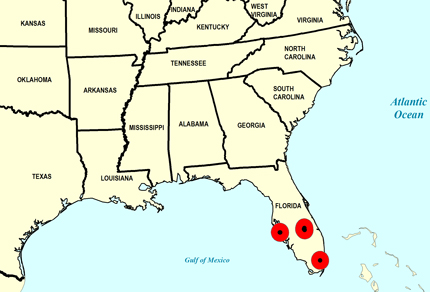
Hexaplex fulvescens
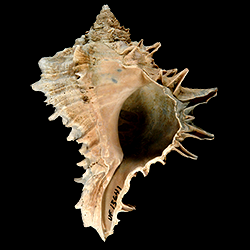
- Phylum: Mollusca
- Class: Gastropoda
- Order: Neogastropoda
- Family: Muricidae
- Genus: Hexaplex
- Species: Hexaplex fulvescens (Sowerby, G. B. II, 1834)
- Common Name: Giant eastern murex or giant Atlantic murex
Geological Range
Late Pliocene to Late Pleistocene; Recent.
Paleogeographic Distribution
Southern Florida to South Carolina.
Remarks
For information on the modern distribution of the species, see Malacolog.
First Full Description (from Reeve, 1845, p. 24-25):
"Shell pear-shaped, sometimes oblong, sometimes shorter and ventricose; whorls bi-angulated at the upper part, transversely ridged and striated, ridges minute, narrow, rather superficial; six- or seven-varicose, varices armed with frondlike spines throughout, spines canaliculated, slightly curved, the basal and those upon the posterior angles, longer, sharp-pointed; white, ridges reddish brown, stained here and there with small crescent-shaped spots of a deeper colour, interior of the aperture white, stained in places with ruddy spots; canal rather elongated, sometimes shorter, recurved.
Valenciennes, Kiener, Icon. Coq. viv. p. 49. pl. 41. f. 1. Hab. Gulf of Mexico.
This very interesting shell, of which a worn stunted example is represented in the 'Conchological Illustrations,' fig. 30, under the erroneous title of Murex turbinatus, was, I believe, originally distinguished by Mr. Sowerby by the name of Murex fulvescens; no description, however, appeared, and as the name was subsequently cancelled from the catalogue, I am obliged to yield to M. Valenciennes the honour of having first introduced the species.
The frond-like spines of the Murex spinicostata are of a sharp simple structure, exhibiting no indication of being foliated; but are singularly characterised in being armed with a small prickle on each side at about one-third of their entire length from the top. This character can, however, only be recognised in such specimens as have the spines well developed."
To access this description in its original formatting through Google Books, click here.
Synonymous with Murex fulvescens G. B. Sowerby II, 1834 (original combination).
Stratigraphic Occurrences
- Late Pleistocene
- Anastasia Formation (S. FL)
- Fort Thompson Formation (S. FL)
- Middle Pleistocene
- Bermont Formation (S. FL)
- Canepatch Formation (SC)
- Late Pliocene
- Tamiami Formation (Pinecrest Beds) (S. FL)
